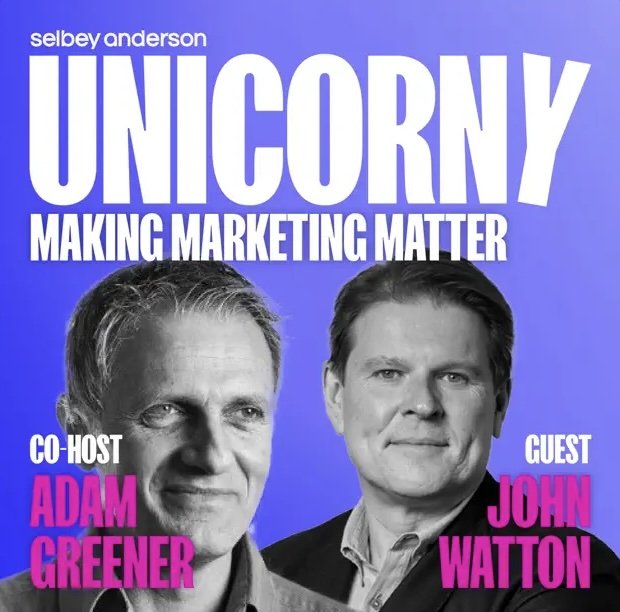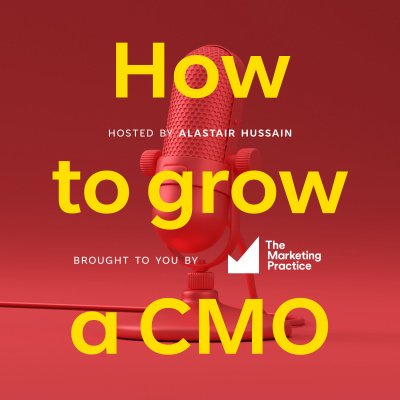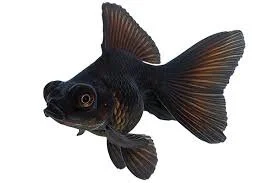John, you’ve had a seriously impressive career – but as we know, very few kids grow up dreaming of becoming a B2B marketer. How did you get into this line of work?
It’s true that no one aspires to be a B2B marketer – in fact, relatively few marketers even go to university to study marketing. But I’m in a specific subset of B2B marketing, the B2B tech industry, and technology was my route in.
I studied computer science at uni – as a teenager, I was very much into the whole home-computing thing, which was just kicking off. After uni, while I loved tech, I vowed never to solder or program another microchip ever again.
But I did like technology; I liked the application of it. So I went to work at a succession of software businesses, first as a consultant and then in more ‘salesy’ roles with customer-facing activity. But being at the coalface of technology sales often felt very short-term, very repetitive.
In sales, you’re only ever as good as your last month or your last quarter. I wanted to get involved in the long term, strategic direction and vision of the company. And it seemed to me that marketing was a great place to be. So to cut a long and winding story short, I became a marketer – and I’ve been doing this now for probably 25 plus years, maybe a bit more.
You’ve got a technical background, but we know you’re also a creative type with an interest in music. Do you think that mixture of skills serves you well as a marketer?
Yes, I’d say so. I’ve got a computer science background, but marketing also speaks to my creative side. I like music production, I was in bands when I was younger, I’ve definitely got that balance. It’s funny – my father is a retired engineer. He loves classical music and art, and he always says: a lot of engineers are into art as a hobby, but not many artists are into engineering…
I think there’s real value to be found in hiring marketers with a passion for creativity but a technical background (and even more so in B2B tech, unsurprisingly). After all, as a B2B marketer, your task is to translate very complex technology concepts, either to technologists or to senior business decision-makers. You don’t just need to understand what you’re talking about, you need to make it engaging, make it relevant.
In my career, I’ve found that people appreciate me having that background. Being able to demonstrate those skills can really help you build relationships as well, because you can prove you’re adding value, especially when you’re working with product or subject matter experts to create content or campaigns.
You’ve worked at some of the biggest names in B2B tech. What have the highlights been, and what’s driven your passion for the field?
I look back and think: this has been a great time to do what we’re doing. I entered the industry at a point where the profession was really maturing – I’ve been through dot com booms, internet revolutions, transformations in cloud technology. And at the same time the shifting dynamic of the population means that almost everyone is comfortable dealing with tech in their daily lives now.
I think that’s bled into the B2B side of things, and our industry now has a lot more in common with consumer marketing than it did, say, three decades ago. We have to inform and get our point of differentiation across, but we also have to engage and, dare I say, entertain.
So about my career, I’d definitely say: right time, right place from a generational point of view. It’s given me great opportunities to work with big brands, fast-growing brands that value both the art and science of marketing: Oracle, SAP, Microsoft, Adobe and now at VMware.
As for what’s driven my career, I’m someone who’s interested in marketing – it always amazes me when people don’t seem to be that interested, actually. We’re not in double-entry bookkeeping, after all. It’s a big, exciting world full of ideas and technology, channels and experiences – and an interest in exploring those things has always kept me going.
What work are you proudest of?
The way the profession’s gone, we’re able to get so much data and insight into what we’re doing – not like 15, 20 years ago when it was primarily ‘good execution, gut feel on the results’. Now we can measure the metrics and really know we’ve created work that’s done well.
Which is to say: some work I’m definitely proud of is my time at Adobe, working on global brand campaigns. I actually relocated to the US to work with Adobe, and spent a lot of time building awareness of what we offered, the digital experience. We knew that the most important thing for us was to tell stories to and about the customer – our mantra was ‘no customer, no campaign’. Everything had to have a customer focus.
I was so proud of the work that came out of that. We focused really heavily on creating genuine engagement, rather than just awareness. Because, ultimately, it’s great if people know what you’re doing – but are they actually engaging? Are they checking out our content in the digital world? With that work at Adobe, we really managed to engage our customers and prospects – we measured metrics by engagement, and were very successful in doing so.
And finally, what’s the best B2B marketing campaign of all time? More to the point: what’s the key to B2B marketing success?
Marketers are always keen to move on to the next thing – every day, we’ve got a new toy, a new tool, a new focus, even a new campaign idea. And us B2B marketers in particular are a funny breed; we get 3% click through on an email and we celebrate it as a success! Think about that. We go down the pub and celebrate the fact that 97% of our audience hasn’t even read the work! Then, even though most of the audience hasn’t even seen it, we become scared to repeat the same thing twice and feel the need to create something else.
So the B2B marketing I admire the most is that which has real, long-term consistency in market. Marketing that isn’t afraid to keep repeating itself – because it knows that’s the only way to reach everyone. Marketing that’s consistent and persistent is really important.
The most significant example of that has to be IBM. All the way back in the nineties, they became synonymous with ‘e-business’ – a phrase that seems a little antiquated now, but they basically went big on e-business, to the point where if you thought ‘digital’, you thought IBM.
They were a great example of someone creating a category and really owning it through a set of consistent habits, advertising and messaging. I don’t see many B2B tech companies being consistent in the market with the same campaign for multiple years. Even now, 25 years later, their ads have the same visual identity – and whenever an IBM ad comes up, I know it’s an IBM ad because they always have the two blue bar strips top and bottom of their ads.
Their ads today have those same stripes that they had in 1997. Which is a bold and wonderful thing to do.










